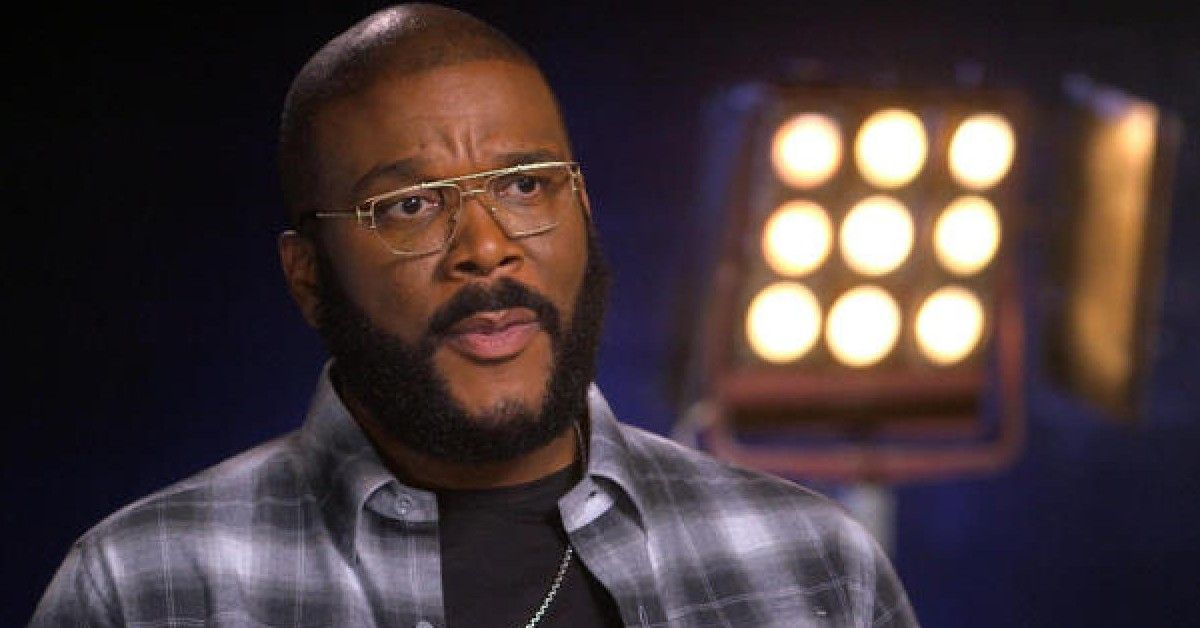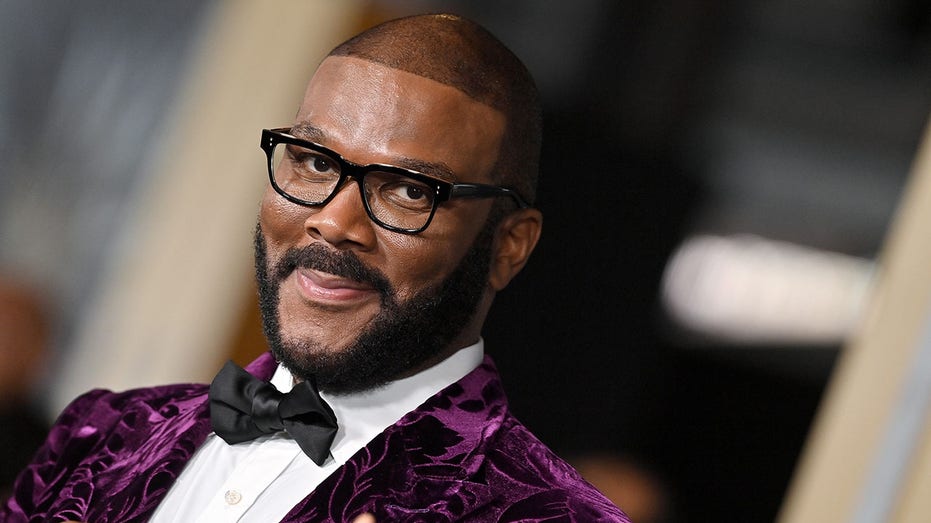Is Tyler Perry, a name synonymous with entertainment, truly what the rumors suggest? Despite persistent speculation, the truth is definitively stated: Tyler Perry is not gay. This assertion, though straightforward, is often clouded by conjecture, fueled by the very nature of celebrity and the publics relentless curiosity about the private lives of those in the spotlight.
Tyler Perry's journey to Hollywood success is a testament to his multifaceted talent and entrepreneurial spirit. He isn't just an actor; he is a writer, director, producer, and studio owner. His influence is far-reaching, impacting various facets of the entertainment industry. Yet, with such prominence comes intense scrutiny, particularly regarding his personal life, which has, at times, become a source of speculation and gossip. The entertainment industry is replete with rumors, and Perry, with his unique career trajectory and the diverse characters he portrays, has found himself at the heart of some of these discussions.
| Category | Details |
|---|---|
| Full Name | Tyler Perry |
| Born | September 13, 1969, New Orleans, Louisiana, USA |
| Occupation | Actor, Director, Producer, Writer, Entrepreneur |
| Known For | Creating and portraying Madea; Films such as "Diary of a Mad Black Woman," "Madea Goes to Jail," and "Why Did I Get Married?" |
| Education | GED |
| Personal Life | Son, Aman Perry (born 2014), with Gelila Bekele. Not married. |
| Notable Achievements | Founder of Tyler Perry Studios; Box office success with his films; Philanthropic work |
| Website Reference | IMDB |
The character of Madea, a loud, brassy, and often hilarious elderly African American woman, is perhaps Tyler Perrys most recognizable creation. Madea, a character born from Perry's own observations and experiences, resonated with audiences, particularly within the African American community, catapulting him to stardom. The Madea films, with their blend of comedy and drama, consistently performed well at the box office, accumulating hundreds of millions of dollars in revenue. The success of Madea, however, also became a focal point for both praise and criticism, with discussions around the character's cultural representation.
Beyond Madea, Perry has written and produced numerous stage plays, particularly in the 1990s and early 2000s. These plays, often infused with gospel music and themes of family and faith, further solidified his fanbase. His transition to film was a natural progression, allowing him to reach even wider audiences. The journey from stage to screen reflects a keen understanding of storytelling and an astute business sense. His success, however, has not shielded him from the often-intrusive nature of media speculation.
The rumors surrounding Tyler Perry's sexuality primarily originated due to the speculation concerning his personal life, which he has always guarded closely. In a world where celebrity news cycles churn relentlessly, this has opened the door for speculation. In the context of discussing Tyler Perry, it's important to approach the subject with sensitivity and acknowledge that public figures have a right to privacy. The mere fact that he maintains a degree of secrecy has, ironically, fueled speculation. Furthermore, his work often features LGBTQ+ themes and characters, adding another layer to the publics perception.
Furthermore, his professional associations also play a part in shaping public opinion. For example, the casting of actor Tyler Lepley in Perrys projects, including "The Haves and the Have Nots," gave rise to rumors and speculation. Lepleys frequent on-screen presence alongside Perry led to conjecture, with gossip columnists linking the two in a romantic context. However, these rumors were directly addressed and denied by Lepley himself in interviews, explicitly stating that their relationship was purely professional.
In an interview on Angela Yees "Lip Service" podcast, Lepley directly addressed the rumors, denying any romantic relationship between him and Perry. This straightforward clarification is important, as it comes from an individual directly involved in the situation. It's also noteworthy that Lepley, while having worked with Perry extensively, has also appeared in various roles that underscore his range as an actor. These details show that the assumptions made are inaccurate and without basis.
Perry himself has addressed the rumors, indicating that they initially bothered him, but he has since grown above them. This mature approach is indicative of someone accustomed to the pressures of fame. His response reflects a conscious effort to maintain his focus on his work and his values, rather than being consumed by rumors and gossip. He has consistently maintained that he is not gay, while also supporting the rights of the LGBTQ+ community.
Perry's support for LGBTQ+ rights, a stance publicly known and often expressed, is another factor that sometimes leads to the misconceptions about his personal life. As a big name in Hollywood, he believes that "love is love" regardless of shape. The distinction between supporting a community and being a member of it should be clearly understood. These are two separate matters, and Perry's support underscores his belief in equality, without a personal alignment being implied.
The medias frequent fascination with celebrity relationships, dating histories, and sexuality often oversimplifies the complexities of individual identity. Perry's case is a prime example. While the public is often curious, the absence of concrete information has inadvertently created a void, which speculation then rushes to fill. His romantic history, as revealed, includes relationships with women, such as Gelila Bekele, with whom he has a child, further underscoring the facts of his personal life. Its a reminder that public perception does not always accurately mirror the reality of an individual's private life.
Furthermore, it's also important to consider the reasons behind the persistence of such rumors. The portrayal of Madea is often cited as a factor, with some drawing parallels between the character and Perry's perceived persona. It's a common fallacy that the characters an actor plays somehow reflect their personal lives. However, the rumors are primarily the result of a lack of detailed information about Perrys romantic life. The absence of a public declaration has left room for speculation.
Denzel Washington, for instance, has inadvertently been dragged into the narrative, although he has not spoken about it. Such indirect influences show how the entertainment industrys public image can be shaped by the simple association of different public figures. The absence of clear statements from Washington has, in a strange way, made the narrative a little more intricate. The speculation underscores the potential for misinterpretation when interpreting these indirect influences.
Alfonso Ribeiro, another actor, also appeared in this instance, declining the idea of Perry helping rebrand his acting career. The interaction of the two further illustrates that the entertainment industry and its dynamics may affect personal or professional matters.
In conclusion, the matter is clear: Tyler Perry is not gay. Despite the rumors and speculation, factual information, his own statements, and his personal history affirm this. While his support for LGBTQ+ rights is commendable, it should not be mistaken for personal alignment. The focus should remain on his achievements as an actor, director, producer, and entrepreneur, and on the characters he creates, without making assumptions about his personal life.


